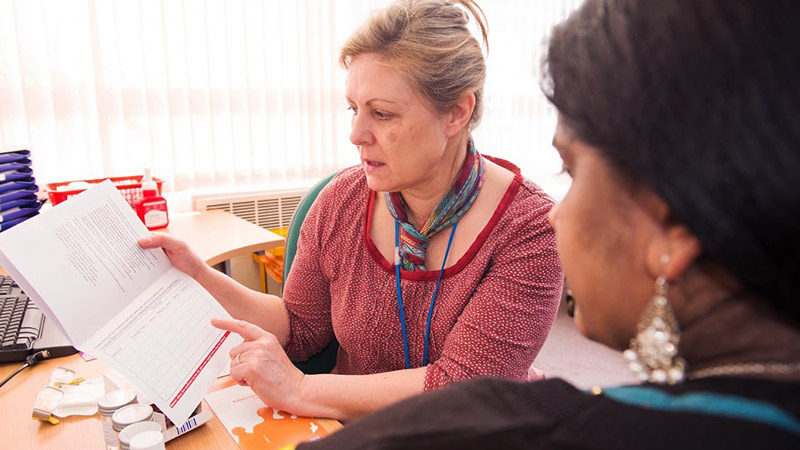Diagnostic Reasoning in Practice
Credit bearing module
Key facts
Course code
CPD7003
Start dates
May 2024 / September 2024 / May 2025
Application deadline
1 September (for a September start)
1 May (for a May start)
Location
Course length
Part time: One semester
Department
Academic level
7
Academic credits
20
More details
This module is available to students on a postgraduate long award (PGC/PGD/MSc). Non Advanced Practice students must contact the Module Leader before adding it to their programme. Module is also available as a standalone to associate students, please check entry requirements for details.*
Overview
This Diagnostic Reasoning in Practice module is theory-based. It will enable you to critically appraise knowledge and evidence related to diagnostic tools used within practice. This knowledge will enable you to make efficient and effective decisions in relation to patients/clients healthcare needs and their management.
The main sciences will be applied to clinical practice and be developed using a problem based learning approach. This will involve you undertaking activities on the module Moodle site for each of the sciences.
This module requires on-campus attendance in alternate weeks on Wednesdays between 1-4pm.

How to apply
Entry requirements
You must
- be a registered Health Care Professional
- have at least 2 years’ post registration experience
- be currently working in a clinical environment.
Terms and Conditions of Enrolment
When you accept our offer, you agree to the Terms and Conditions of Enrolment. You should therefore read those conditions before accepting the offer.
Application process
Apply through our Moodle Portal.
If you wish to take this as a standalone module then you can apply to be a postgraduate associate student using our online application portal. You will need to register for the portal prior to proceeding with an application.
Tuition fees
Questions about fees?
Contact Student Finance on:
Tuition fees
Fees quoted are for the first year only. If you are studying a course that lasts longer than one year your fees will increase each year.
How and when to pay
Tuition fee instalments for the semester are due by the Monday of week 1 of each semester. Students are not liable for full fees for that semester if they leave before week 4. If the leaving date is after week 4, full fees for the semester are payable.
- For information on payment methods, please see our Make a Payment page.
- For information about refunds, please visit our Refund policy page
Financial support and scholarships
Additional costs
Please be aware that some courses will involve some additional costs that are not covered by your fees. Specific additional costs for this course are detailed below.
Learning and assessment
You will attend seminars in alternate weeks for ‘problem based learning’. During seminars you will engage in critical debate and exploration of a clinical case study related to one of the 5 main medical science subjects / diagnostic tools.
You will work in small groups to discuss action plans / solutions to the clinical dilemmas. You are expected to apply scientific knowledge when exploring the case scenario, and to determine the evidence-base underpinning the use of relevant diagnostic tools.

Learning and teaching
You will be supported to:
- develop skills in critical analysis and appraisal of theory and research evidence that underpins use of diagnostic tools / tests in clinical practice
- use online learning activities and directed reading to explore medical sciences, e.g. biochemistry, genetics, immunology, microbiology and haematology
- apply medical sciences knowledge and understanding when exploring clinical case studies using a problem-based learning approach
- utilise online learning resources to gain an introduction to interpretation of diagnostic tests, for example, abdominal and chest x-rays, and ECG recordings.
Programme changes:
On rare occasions we may need to make changes to our course programmes after they have been
published on the website. For more information, please visit our
changes to programmes page.
